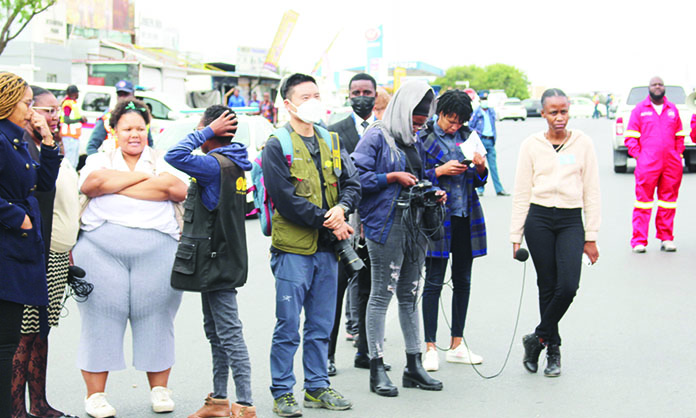The Namibia Media Professionals Union (Nampu) has drawn attention to the needs of journalists, following a report highlighting the threatened longevity of media houses.
The recent media viability briefing paper produced by Institute for Public Policy Research (IPPR) noted that newspapers specifically are concerned about the survival of quality and public interest-oriented journalism which underpins press freedom.
IPPR recognises that media houses are downsizing to survive.
“They will have to rely on fewer staff and more freelancers, produce content for multiple channels and offer unorthodox services such as media production facilities to generate extra cash,” the paper reads.
While agreeing with the briefing paper, media union acting secretary general Jemima Beukes yesterday argued that the dark cloud hovering over the industry is the imminent crash of overworked and underpaid journalists which leads to threatening job security.
“Most importantly, we should recognise that the underpayment and increased workload for journalists, fuelled by media convergence or otherwise digitalisation, is indeed undermining the quality of journalism, especially investigative journalism in Namibia,” Beukes noted.
Beukes said the advent of digitisation has brought immense pressure on journalists.
“Editorial demands should not compromise the integrity and well-being of journalists, because what we see is that the experienced journalists who remain are stretched thin, tasked with producing a relentless stream of content across multiple platforms, often without adequate compensation or consideration for their mental health,” Beukes said.
On the other hand, the Namibia Media Trust (NMT) draws attention to the fact that media viability places stress on the values of the craft such as external pressures, censorship and compromised journalistic integrity.
“… which ultimately poses a threat to its fundamental function as a watchdog and protector of freedom of expression and information,” said NMT director Zoé Titus yesterday.
Titus highlighted that the government policy, which originated from a 2015 Cabinet decision to prioritise public media for the allocation of public advertising and information, directly contradicts the principles of the Windhoek Declaration.
“It has still not been rescinded,” she said.
She said media viability should be a national issue because it will have countrywide consequences.
“It’s unfathomable that there is no media – no radio, television, internet, newspapers, etc,” Titus said.
IPPR reflected the sentiments of a United Nations agency calling for the implementation of policies and regulations to support journalism, with options including taxing tech companies, introducing tax incentives for media houses and increased development funding.
“These policies will, however, require increased regional and global cooperation between states – Namibia’s poor state finances and small economy cannot hope to implement such policies independently,” noted the IPPR.
The briefing paper suggested that a dedicated fund to finance and sustain independent journalistic work should be explored.
“A dedicated fund to finance and sustain independent journalistic work supported by international institutions and corporates for southern Africa could be a viable solution,” noted the paper.



Leave a Reply